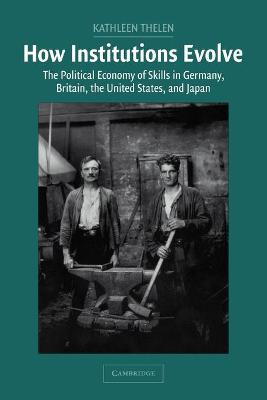Cambridge Studies in Comparative Politics
2 total works
Varieties of Liberalization and the New Politics of Social Solidarity
by Kathleen Thelen
Published 31 March 2014
This book examines contemporary changes in labor market institutions in the United States, Germany, Denmark, Sweden, and the Netherlands, focusing on developments in industrial relations, vocational education and training, and labor market policy. It finds that there are in fact distinct varieties of liberalization associated with very different distributive outcomes. Most scholarship equates liberal capitalism with inequality and coordinated capitalism with higher levels of social solidarity. However, this study explains why the institutions of coordinated capitalism and egalitarian capitalism coincided and complemented one another in the 'Golden Era' of postwar development in the 1950s and 1960s, and why they no longer do so. Contrary to the conventional wisdom, this study reveals that the successful defense of the institutions traditionally associated with coordinated capitalism has often been a recipe for increased inequality due to declining coverage and dualization. Conversely, it argues that some forms of labor market liberalization are perfectly compatible with continued high levels of social solidarity and indeed may be necessary to sustain it.
The institutional arrangements governing skill formation are widely seen as a key element in the institutional constellations defining 'varieties of capitalism' across the developed democracies. This book explores the origins and evolution of such institutions in four countries - Germany, Britain, the United States and Japan. It traces cross-national differences in contemporary training regimes back to the nineteenth century, and specifically to the character of the political settlement achieved among employers in skill-intensive industries, artisans, and early trade unions. The book also tracks evolution and change in training institutions over a century of development, uncovering important continuities through putative 'break points' in history. Crucially, it also provides insights into modes of institutional change that are incremental but cumulatively transformative. The study underscores the limits of the most prominent approaches to institutional change, and identifies the political processes through which the form and functions of institutions can be radically reconfigured over time.

